It’s hard to believe that I’ve been on my REAL food journey for over five years now. I certainly have come a long way since I left General Mills in 2008. But probably the single, biggest change in my diet happened in 2010 when I bought a share from a local, CSA organic farm.
And with the annual National CSA Sign-up Day being in February, it’s the perfect time to talk about CSAs and why I’m such a huge fan!
How I learned about CSAs
Ironically, the first time I had even heard of the term CSA was in 2006 when I was running General Mills’ half-billion dollar dry dinners business … aka Hamburger Helper. Michael Pollan’s The Omnivore’s Dilemma had just been published, and there was an increased interest in local food. Periodically I’d receive updates from my 40+ member dry dinners team, and during one of those meetings, a member of my product development team mentioned her CSA and offered to share a list of local farmers she had discovered.
Although I was initially interested in the concept, like many things, I got swept up in life’s currents and didn’t sign up with a local farm. Occasionally the thought of joining a CSA bubbled up in my head again, but it wasn’t until writing my novel about the processed food industry, FAT PROFIT$, that I finally made the leap. At that point, I decided I had to make some real, permanent changes in how I approached food.
What Is a CSA?
Well, first off, CSA stands for Community Supported Agriculture, and it represents a totally different model of getting food from farm to table. Rather than depending on a far-flung distribution chain that grocery stores have become known for, CSAs connect families directly to farms. Although different models exist, most CSAs involve people purchasing a weekly share directly from a local farmer. In exchange, the member receives the freshest, highest quality, local produce around. Literally, vegetables are picked, packed, and delivered from field to table in a matter of 24-48 hours … a huge difference from the traditional grocery store distribution chain. Talk about knowing your farmer and where your food comes from!
How My CSA Changed My Life and Made Me SO Much Healthier!
Now why I say my CSA changed my life is because when you’re connected directly to a farm and receiving a weekly share, you start thinking about your meals differently. Rather than planning the same old meals, making a list, and shopping at a grocery store, joining a CSA turns the whole meal-planning process completely on its end. And it’s that radical change that helped me disconnect from a lot of the unhealthy, highly processed eating decisions I had made for years. Yes, it took a while to adjust, but I’m so thankful I made the leap. Here are just a few of the reasons why I’m a huge supporter of CSAs:
- My meal planning starts with vegetables first: Although most sensible dietary advice suggests that we should eat more plants and vegetables when’s the last time most people began their meal planning thinking about vegetables first? The typical American might plan the main dish (usually some meat or pasta) and vegetables become an after-thought. And even when you have the best intentions of changing how you eat, we’re human—we’ve developed bad habits, and we often succumb to unhealthy food ruts. What I love about joining a CSA is that it forces the issue. I won’t lie to you, the transition to a CSA can be a challenge, but it really helps you break away from processed food inertia. On a weekly basis, you’re faced with figuring out how to use your box of vegetables. And if you’re like me and you hate wasting money and food, a new dynamic starts to emerge and you plan meals differently! For a little help getting your meal planning started, check out our free meal planning guide.
- I’m more connected to the land: If you shop at most grocery stores, food becomes a relatively season-less place. Yes, you may have some understanding that tomatoes and sweet corn taste better during the summer. But when you join a CSA, you really learn how weather and seasons impact what you eat. And while some people might be annoyed that tomatoes won’t be in their share the entire summer, I have a greater appreciation of what it takes to grow vegetables, and how much better freshly grown, nutrient-rich, local produce tastes. And if you choose to join an organic, sustainable, or more environmentally conscious CSA, you’ll receive the added benefit of being exposed to fewer pesticides plus a whole lot more!
- I’ve learned so much about new vegetables and how to cook them: Are you in a food rut? I know I was. Before I joined a CSA my vegetable repertoire was pretty much limited to green beans, broccoli, peas, and salads. Believe it or not, there’s a vast world of vegetables out there, and there’s nothing better than a CSA to get you learning about how to cook greens, kale, kohlrabi, and all kinds of veggies!
- I know my farmer: One of my greatest joys in making the CSA transition has been getting to know my farmer, Gary Brever. I’m very fortunate to have found a local farmer who really knows his stuff and is one of the leaders of local, organic farming in Minnesota. Gary takes the time to explain to his members the benefits and challenges of local farming. Also visiting the farm, seeing where your food grows, and learning more about the process is a powerful step in breaking away from the processed food distribution chain. Joining a CSA makes all of this possible!
How Can You Find a CSA and Start Eating Healthier?
If you want to take the next step on your real food journey but haven’t joined a CSA yet, consider making the move now! Here’s some advice about finding a farm and making the transition:
- Research local farms in your area and see how they stack up with your personal food values. LocalHarvest.org has some amazing resources on their website that can get you started with finding local farms for vegetables, eggs, or meat.
- Don’t be afraid to contact the farmer and ask questions. Most farmers are more than willing to talk to you and answer any questions you may have, especially if it’s during their off-season.
- Look to see what tools prospective farms may offer to help you make the move to eating healthier. Many farms share resource guides on making the transition, weekly newsletters, and links or free memberships to websites that can help you come up with new recipes.
- Experience and awards matter when choosing a farm. There are plenty of new farms out there that are wonderful, but there’s nothing like experience and the school of hard knocks to teach a farmer how to grow vegetables. If the farm you’re interested in doesn’t mention their experience, email the farmer, and learn more. The bottom line is you want to make sure your farmer knows what he or she is doing!
- Consider joining with a friend or family member. Making the transition to eating from a weekly share can be daunting at first. Making any change is always easier when you’ve got someone to help support you along the way.
- Purchasing the right size share is important, especially if you’re new to eating REAL food. There’s nothing like getting overwhelmed and failing to turn you off on the change. Set yourself up for success and start with a smaller share your first year or consider splitting a share with another family.
- Discover cookbooks, blogs, and other websites that share tips and recipes to help you make your REAL food conversion! There’s nothing like experience to help make the path to real food and cooking vegetables a little smoother.
- It’s never too late to make the change and sign up for a CSA. National CSA Sign-up Day is a great way to increase awareness and get people to act, but regardless of what day it is, research local farms in your areas and make the move!
Finally, while I’m confident CSAs are a great way to start or continue your real food journey, I realize they’re not for everyone. Personally, I really appreciate how my CSA has forced me out of my food rut, but exploring farmers markets, food co-ops, and even grocery stores committed to local produce are all pathways for change. Picking the route that feels right for you is always best!
So what do you think? Are you already a member of a CSA? How did you like it? What advice do you have to share? Or what other paths to healthier, real food eating have you found works best for you, and why?
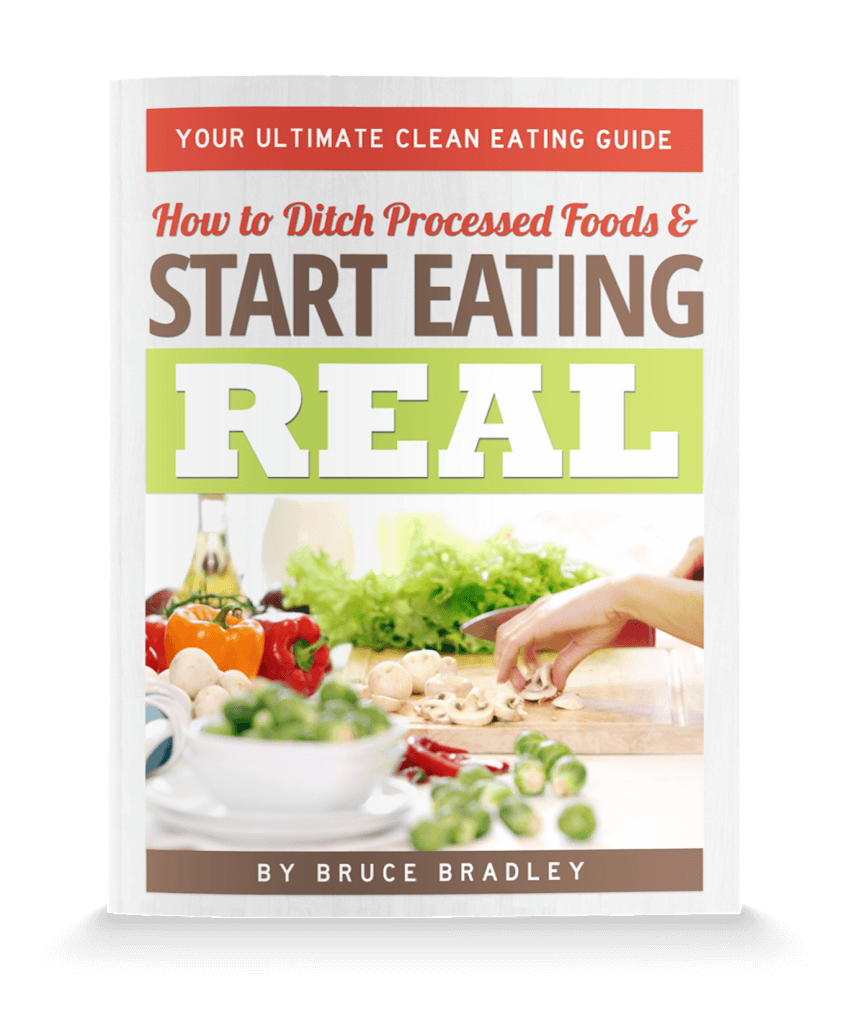
GET MY FREE BOOK NOW!
End the confusion! Learn what’s really in your food and how to take simple steps toward eating healthier!
EAT HEALTHIER TONIGHT!
If you enjoyed this article or recipe may I ask you a favor? Please share it with a friend. Why? Because together we can make a difference and help each other live happier and healthier lives. Thank you!
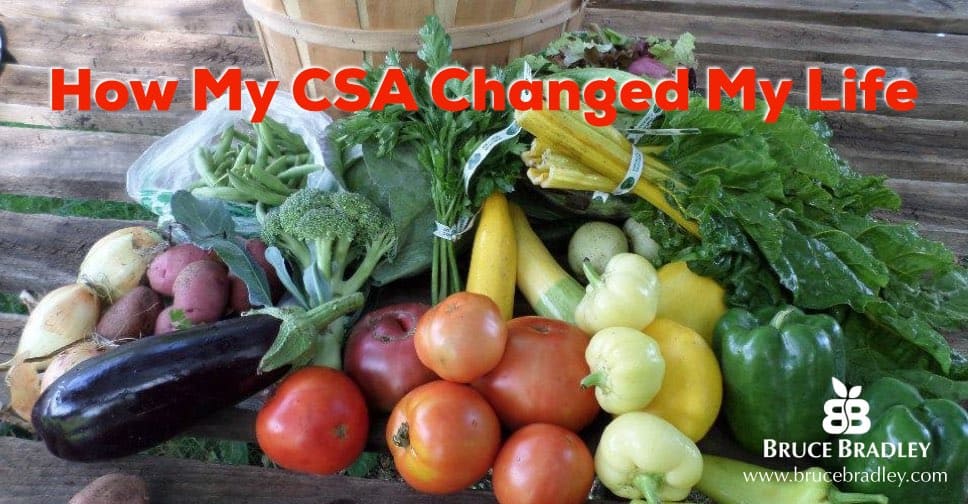
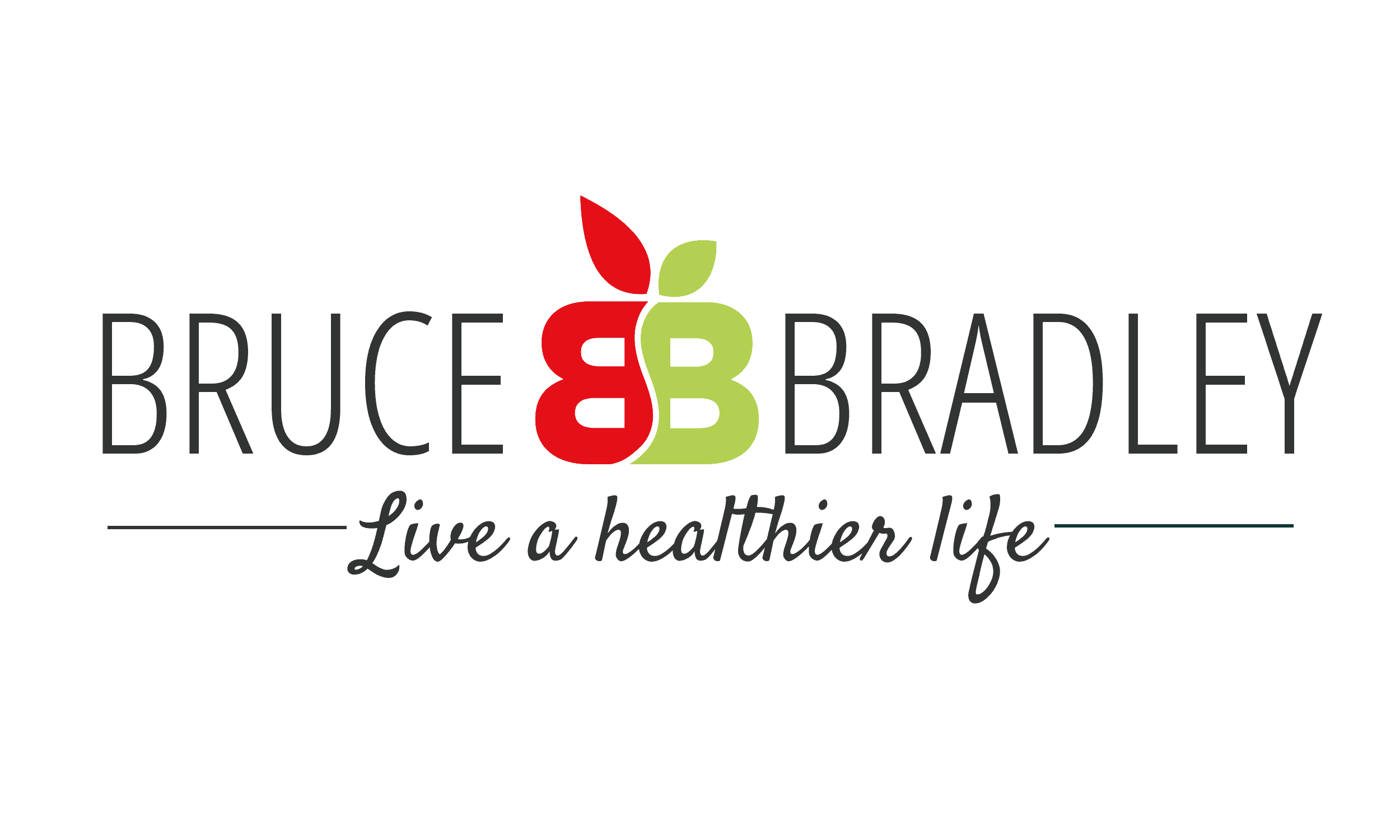
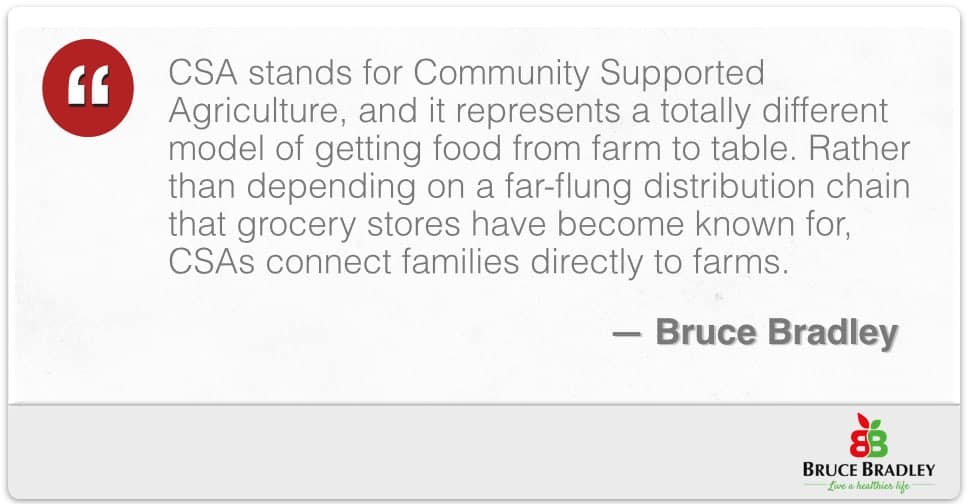
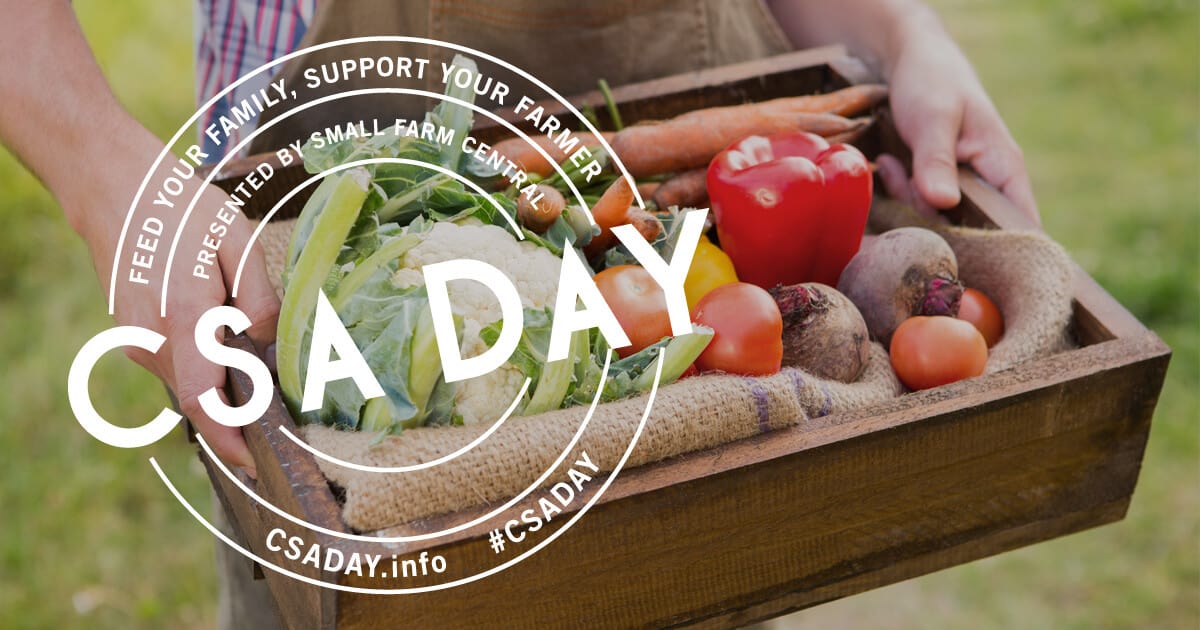



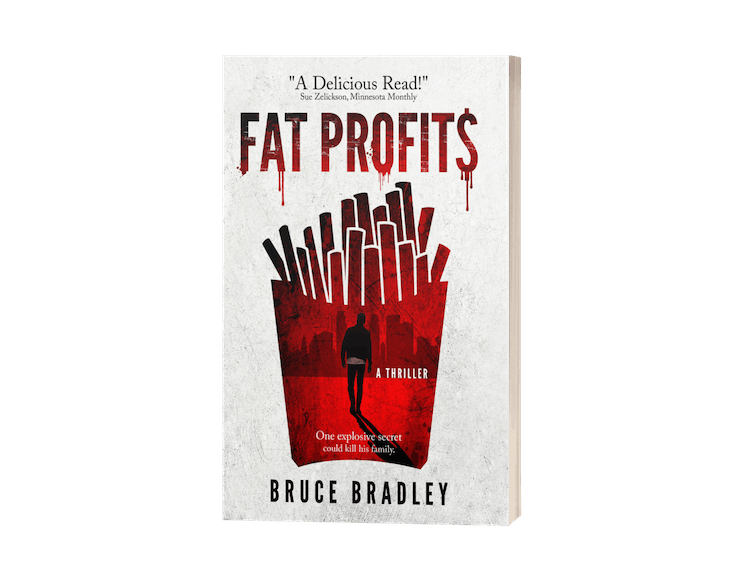
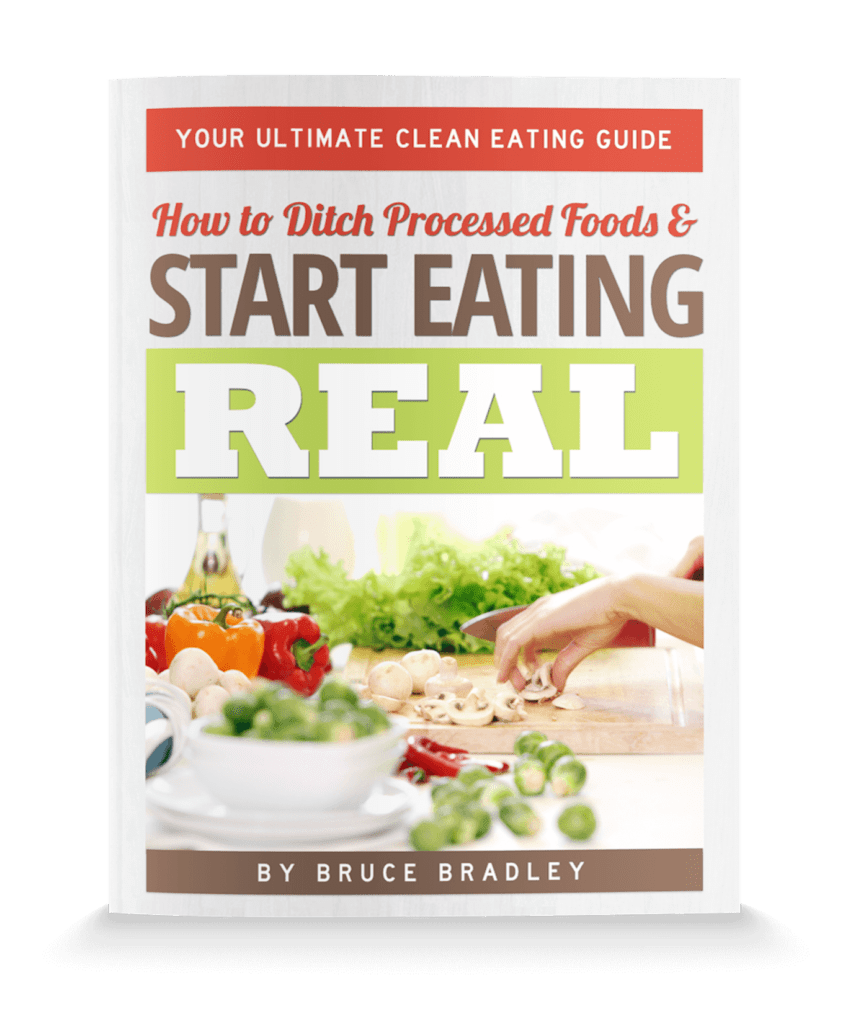
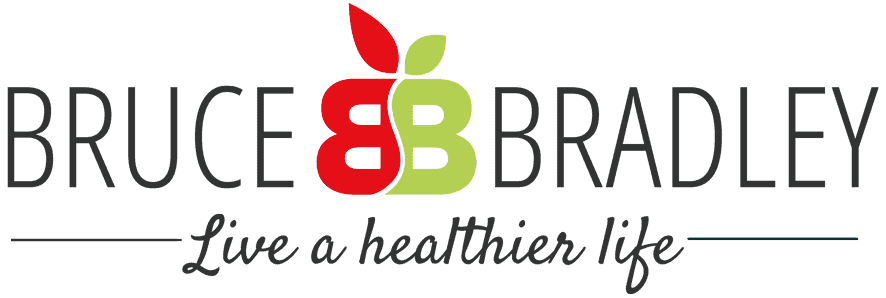
3 Responses
As a former member coordinator for a CSA farm and a CSA member for years prior to that work, I can fully attest that the first season can be a challenge for those new to the concept of eating locally grown vegetables and fruit. I think a farm that offers staffed pickup sites is a great choice–someone knowledgable will be right there to answer questions, identity veggies that are new to members and give suggestions on prep, cooking and storage. There are lots of great online resources too. One favorite is http://www.csacoalition.org. There are links to Wisconsin CSA farms, but also lots of valuable information for new CSA members anywhere or even folks considering CSA. They offer a couple of cookbooks that are super for using Midwest-grown produce, too.
Wow! Thanks for the great article!
Thanks, Karen. Glad you enjoyed it!